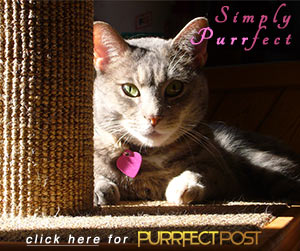Causes of Unexplained Weight Loss in Cats

Obesity is a big problem in cats that stay inside all of the time. However, the opposite problem, weight loss, can mean that a cat has a big problem, especially when it happens without a change in diet or exercise.
Many times, a cat's weight loss can sneak up on an owner. When you see the kitty every day, it can be hard to notice a gradual weight loss, but if you look at your cat one day and realize that she looks smaller than normal, you will want to make an appointment with her veterinarian right away. Below are some of the main reasons that cats lose weight unexpectedly.
Cancer Can Cause Unexpected Weight Loss in Cats
Cats that are suffering from cancer often have quick, unexplained weight loss as one of the main signs. They may also exhibit other signs of illness, including decreased appetite, vomiting, hiding or withdrawal from social situations, and lethargy.
Cancer can affect any system in the body, and the signs of illness that occur can be somewhat specific to the affected system. However, most internal cancers commonly cause weight loss. Cats with cancer may or may not be eating normally while they are losing weight.
Hyperthyroidism Causes Weight Loss in Cats
Hyperthyroidism is a common illness diagnosed in cats, and it causes weight loss. Cats with this condition are usually eating well, even more than usual, but they are rapidly losing weight. Hyperthyroidism also often causes some or all of the following signs:
- Hyperactivity
- Increased vomiting
- Crying for food, including human food
- Increased heart rate
- Pacing and crying at night
Diabetes Mellitus Usually Causes Weight Loss in Cats
Diabetes mellitus, which is the inability of the cat to produce enough insulin with resultant sharp increases in blood sugar levels, often causes unexplained weight loss in cats. They may also be eating more than usual while losing the weight, and most cats drink large amounts of water when they have diabetes. They are also often vomiting more often than usual and may have sticky urine and sweet breath.
Organ Failure Causes Cats to Lose Weight
Cats with kidney, liver, or heart failure often lose weight. Usually, these cats are eating less than normal, and they may be vomiting more, too. These conditions are more common in older cats than younger ones, but they can all occur in young cats, as well.
Mouth Problems Can Cause Feline Weight Loss
Cats with problems that affect their mouths often lose weight. They may have difficulty eating or be avoiding food altogether because the mouth condition is causing them pain. Sometimes you will see a cat with mouth pain moving food around in their mouth, trying to find a spot to chew that doesn't hurt. These cats might also be drooling, have a foul odor from their mouths, and be pawing or rubbing at their faces more than usual. Some problems in the feline mouth that can cause this include:
- Broken or sore teeth
- Tooth root abscesses
- Growths in the mouth
- Stomatitis
- Gingivitis
Inflammatory Bowel Syndrome (IBS) Causes Weight Loss in Cats
IBS in cats can cause weight loss, even without a change in diet or exercise levels. Cats with IBD often have recurring bouts of vomiting and diarrhea, and they can have trouble absorbing the nutrients in their diet.
Bouts of IBS in cats may occur following a stressful event such as a kennel visit, but they may also not appear to have any rhyme or reason to them.
If your cat appears to have lost weight without a change in diet or exercise levels, consult with your veterinarian right away.
You May Also Like These Articles:
Notice: Ask-a-Vet is an affiliated service for those who wish to speak with a veterinary professional about their pet's specific condition. Initially, a bot will ask questions to determine the general nature of your concern. Then, you will be transferred to a human. There is a charge for the service if you choose to connect to a veterinarian. Ask-a-Vet is not manned by the staff or owners of CatHealth.com, and the advice given should not delay or replace a visit to your veterinarian.





